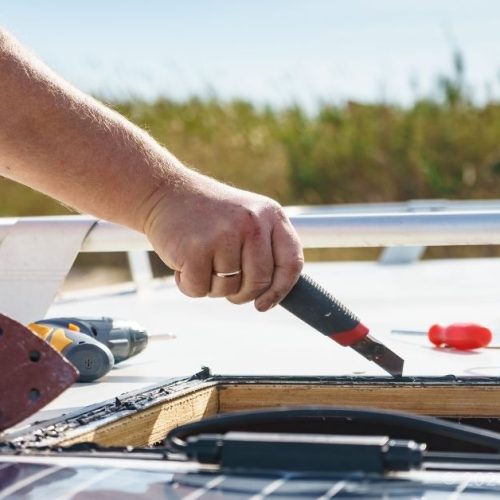Residential fridges are one of the most important appliances in our homes. They keep our food fresh and safe, but they can also be dangerous if not used properly. Here are some tips for preventing accidents and hazards with your residential fridge:

- Check the temperature regularly. The ideal temperature for a fridge is between 3 and 5 degrees Celsius. This will help to keep your food fresh and prevent the growth of bacteria.
- Do not overload the fridge. This can restrict airflow and prevent the fridge from cooling properly.
- Clean the fridge regularly. Spills and leaks can attract bacteria and pests.
- Keep the door closed as much as possible. When you open the door, warm air rushes in, making the fridge work harder and use more energy.
- Dispose of expired food promptly. Expired food can spoil and grow bacteria, which can make you sick.
In addition to the tips above, you can do several other things to ensure the safety of your residential fridge. Here are some more specific tips:
Electrical safety
- Make sure the fridge is properly plugged in. The cord should be plugged into a grounded outlet.
- Do not use extension cords or power strips. These can overload the circuit and cause a fire hazard.
- Inspect the cord and plug regularly for damage. If you see any fraying or cracking, replace the cord immediately.
- Keep the fridge away from water sources. Water can damage the electrical components of the fridge and cause a shock hazard.
Food safety
- Store food properly. Different types of food need to be stored at different temperatures. For example, meat and poultry should be stored on the fridge’s bottom shelf, where it is coldest.
- Do not cross-contaminate food. Raw meat and poultry should be stored separately from other foods to prevent the spread of bacteria.
- Label and date food. This will help you track how long food has been in the fridge and ensure you eat it before it spoils.
- Thaw food safely. Frozen food should be thawed in the fridge, not on the counter. This will help to prevent the growth of bacteria.
Maintenance and repairs
- Clean the fridge regularly. Use a mild soap and water solution to clean the interior and exterior of the fridge. Be sure to dry the fridge thoroughly after cleaning.
- Defrost the fridge regularly. If your fridge has a manual defrost function, defrost it every few months. If your fridge has an automatic defrost function, you may not need to defrost it as often.
- Have the fridge serviced by a qualified technician regularly. This will help to ensure that the fridge is working properly and safely.
Tips for preventing accidents with children
- Keep the fridge door closed as much as possible. Children can be curious and may try to open the fridge door, which could lead to accidents.
- Store dangerous items out of reach of children. This includes items such as cleaning products, medications, and alcohol.
- Teach children about fridge safety. Explain the importance of keeping the door closed and not touching the fridge’s contents without permission.
Conclusion
By following these tips, you can help to prevent accidents and hazards with your residential fridge. By taking care of your fridge, you can also extend its lifespan and save money on energy costs.
Additional tips
- Install a ground fault circuit interrupter (GFCI) outlet. A GFCI outlet can help to prevent electrical shock if water comes into contact with the outlet.
- Consider installing a child safety lock on the fridge door. This can help to prevent children from opening the fridge door without permission.
Be aware of the recall notices for residential fridges. If your fridge is subject to a recall, have it repaired or replaced immediately.








